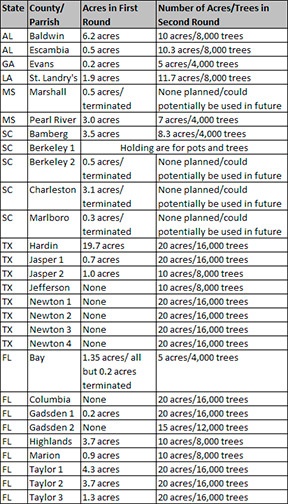1 min read
USDA Approves Test Plantings of Genetically Engineered Trees
 Suz-Anne Kinney
:
July 5, 2010
Suz-Anne Kinney
:
July 5, 2010

According to the Environmental Assessment conducted by the USDA’s Animal and Plant Health Inspection Service (APHIS), the trees planted will be genetically modified in the following ways:
These plants . . . have been genetically engineered with different constructs. The purpose of the field trials is to test the effectiveness of the CBF gene which is intended to confer cold tolerance and to test the efficacy of the Barnase gene designed to alter fertility. In a small set of experiments, the CBF and Barnase genes are also being tested in combination with genes introduced to alter lignin biosynthesis.
Arborgen began testing these genetically engineered trees in 2008 on 57 acres in the South, though trees on only two of the plots were allowed to flower. Although the exact location of the sites for the upcoming expanded trials are considered confidential business information and not publically available, 28 sites have been approved. All but a holding area in South Carolina will be allowed to flower. In the first round, 5 trials were terminated; Arborgen does not have current plans to continue trials on these sites.





